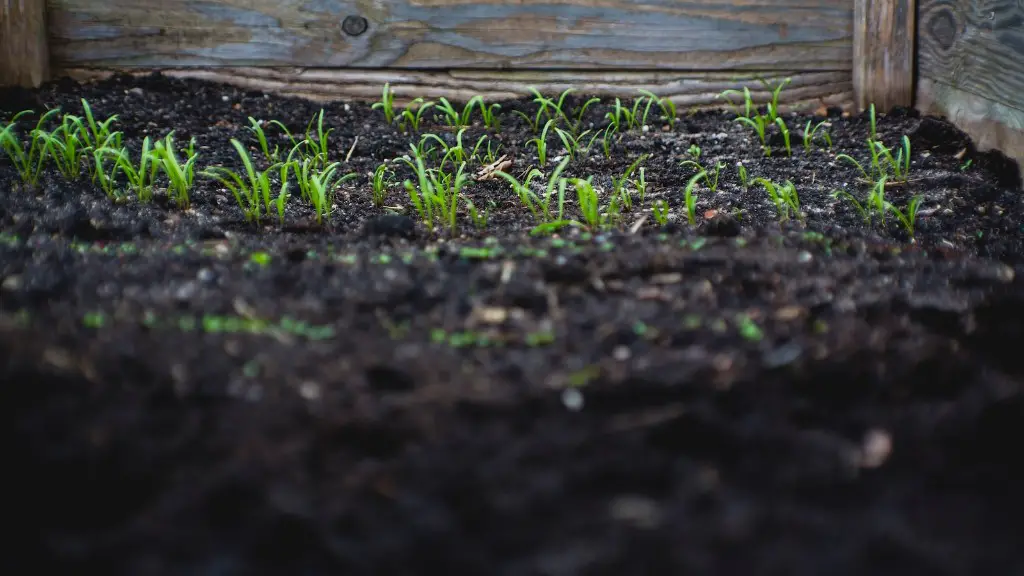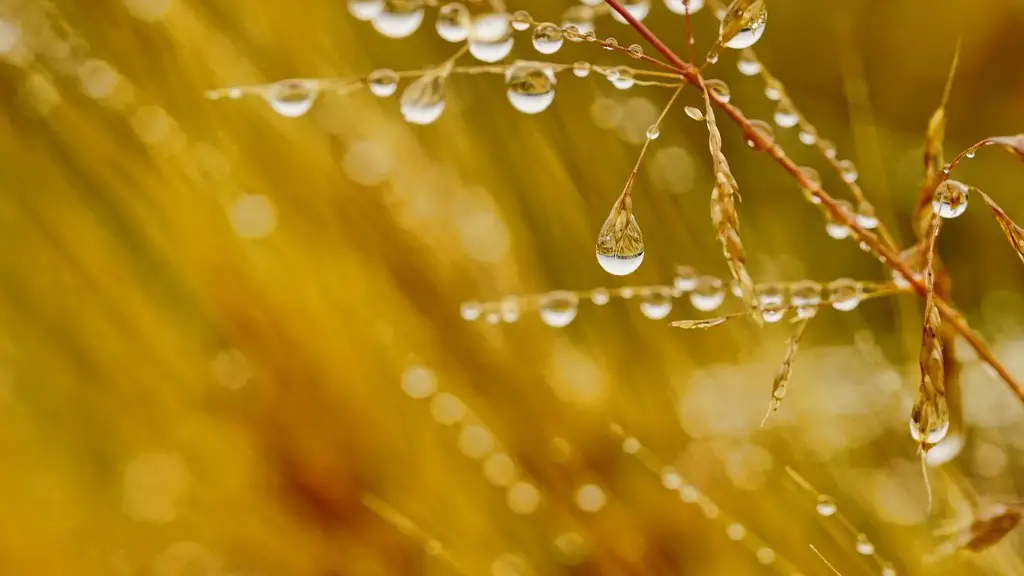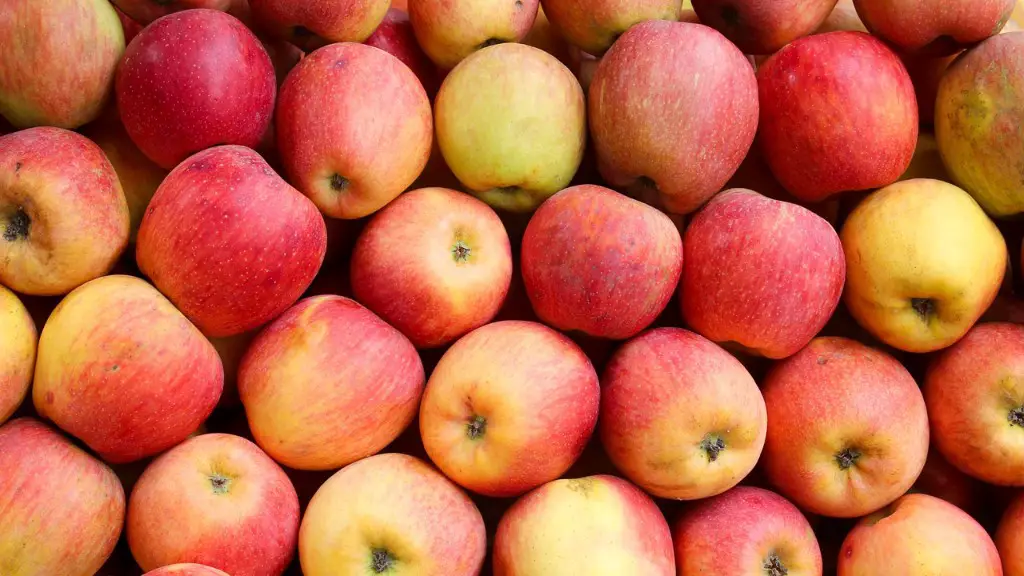Ammonia is used in agriculture as a fertilizer for crops. It helps to improve the yield of crops and make them more resilient to pests and diseases. Ammonia can also be used as a herbicide, and it is sometimes used to make livestock feed.
Ammonia is used in agriculture as an agricultural fertilizer. It is a source of nitrogen for plants, which is essential for plant growth. Ammonia can also be used as a weed killer.
How is ammonia used in fertilizers?
Ammonia is a key ingredient in the production of nitric acid and nitrate fertilizers. Ammonia can be mixed with liquid carbon dioxide to create urea, which can then be mixed with water to form UAN (urea ammonium nitrate) solution.
Anhydrous ammonia is a very efficient and widely used source of nitrogen fertilizer. However, if not handled properly, it can be very dangerous. Anhydrous means “without water”.
What happens if we use ammonia on agricultural land
Ammonia is a highly corrosive and toxic substance that can cause serious health problems if it comes into contact with the human body. When injected into the soil, the liquid ammonia expands into a gas and is readily absorbed in the soil moisture. Similarly, the liquid or gas that contacts body tissue – especially the eyes, skin and respiratory tract – will cause dehydration, cell destruction and severe chemical burns. Inhaling ammonia can also cause lung damage and even death. It is important to take precautions to avoid contact with this substance.
Ammonia is a very versatile chemical and has a wide range of uses. It is used as a refrigerant gas, for purification of water supplies, and in the manufacture of plastics, explosives, textiles, pesticides, dyes and other chemicals. Ammonia is also used in the food industry as a preservative.
Does ammonia stimulate plant growth?
Ammonium is a major component of nitrogen fertilizer. It is a preferential nitrogen source and promotes growth of most plant species.
Ammonia is used in the production of nitrogen fertilizers, which are essential for crop growth. Without ammonia, crops would not be able to access the nitrogen they need to grow. Ammonia is also used as a base material for other fertilizers. Ammonia production is responsible for putting food on the table for billions of people around the world.
What are the pros and cons of ammonia fertilizer?
Anhydrous Ammonia is a great source of nitrogen for plants, and is easy to apply. However, it can be difficult to distribute evenly and can be lost in irrigation water. Additionally, it can be toxic to plants and potentially hazardous to eyes.
The most common use of anhydrous ammonia is as a fertilizer for corn and wheat. Farmers spray corn with ammonia because nitrogen is one of the 17 essential elements used to help plants grow efficiently and healthily. Tractors pull large tanks of anhydrous ammonia or ammonia-based fertilizer.
Is ammonia fertilizer explosive
Ammonium nitrate is a chemical compound that can be used as an explosive. However, it is not exceptionally explosive on its own. The compound can contribute to explosions because it belongs to a chemical class known as oxidizers.
Ammonia is a highly effective and widely used source of nitrogen for plant growth. Its easy application and ready availability have made it a popular choice for farmers in Missouri. Ammonia is an excellent fertilizer for crops, and its use can help to improve yields.
How long does ammonia last in soil?
nitrification is the process by which nitrogen is converted into a more readily available form, such as nitrate or ammonium. This process is important in the nitrogen cycle because it makes nitrogen available to plants, which in turn can be used by other organisms. Nitrification can occur naturally, but it can also be enhanced by the addition of nitrogen-containing fertilizers.
Ammonium sulfate is a great fertilizer for lawns because it provides nitrogen and sulfur, which are two essential nutrients for plant growth. It’s also relatively inexpensive, so it’s a great option for those on a budget. However, it’s important to be careful not to apply too much ammonium sulfate, as this can lead to an excessive amount of growth.
Is ammonia good for plants
Nitrogen is a key element for plant growth and ammonia is the fertilizer with the highest nitrogen content. Ammonia can be applied directly to soil or converted into other common nitrogen fertilizers, making it an important part of Agriculture.
Water pollution is a very serious problem that can have devastating consequences for our environment and our health. One of the most important things we can do to prevent water pollution is to never pour harsh cleaning products like bleach or ammonia down the drain. These products can contaminate our water supply and cause serious harm to our ecosystem.
Is ammonia harmful to humans?
Ammonia is a toxic gas or liquid that can be fatal if inhaled in high enough concentrations. It is corrosive to tissues and can cause severe respiratory distress.
Ammonium toxicity is a major problem for farmers and gardeners alike, as it can damage plant roots and water-conducting tissues, leading to wilting and stunting. In some cases, plants may die outright, and even surviving plants can be left with reduced marketability. Furthermore, ammonium can also reduce seed germination rates, making it difficult to establish new plants.
What are the disadvantages of ammonia
Ammonia is a gas that is commonly used in many industrial settings. However, exposure to high concentrations of ammonia can be extremely dangerous. Symptoms of exposure to high concentrations of ammonia include burning of the eyes, nose, throat and respiratory tract, and can even result in blindness, lung damage or death. Inhalation of lower concentrations of ammonia can cause coughing, and nose and throat irritation. It is important to be aware of the risks of exposure to ammonia, and to take precautions to avoid exposure in any settings where there may be a risk of exposure to high concentrations of the gas.
Plants absorb significant quantities of ammonia from the air, even at naturally occurring low atmospheric concentrations. This was discovered by monitoring the disappearance of ammonia from an airstream flowing through a small growth chamber containing a single plant seedling. Ammonia is an important plant nutrient and its absorption by plants may play a role in the global nitrogen cycle.
Conclusion
Ammonia is used as a fertilizer in agricultural production. It is commonly used in a process called anhydrous ammonia, in which the ammonia is applied to the soil without being diluted with water.
Ammonia is used in agriculture as a fertilizer. It is also used as a disinfectant, and as an antifungal agent. Ammonia can be used to increase the alkalinity of soils, which can improve crop yields.





